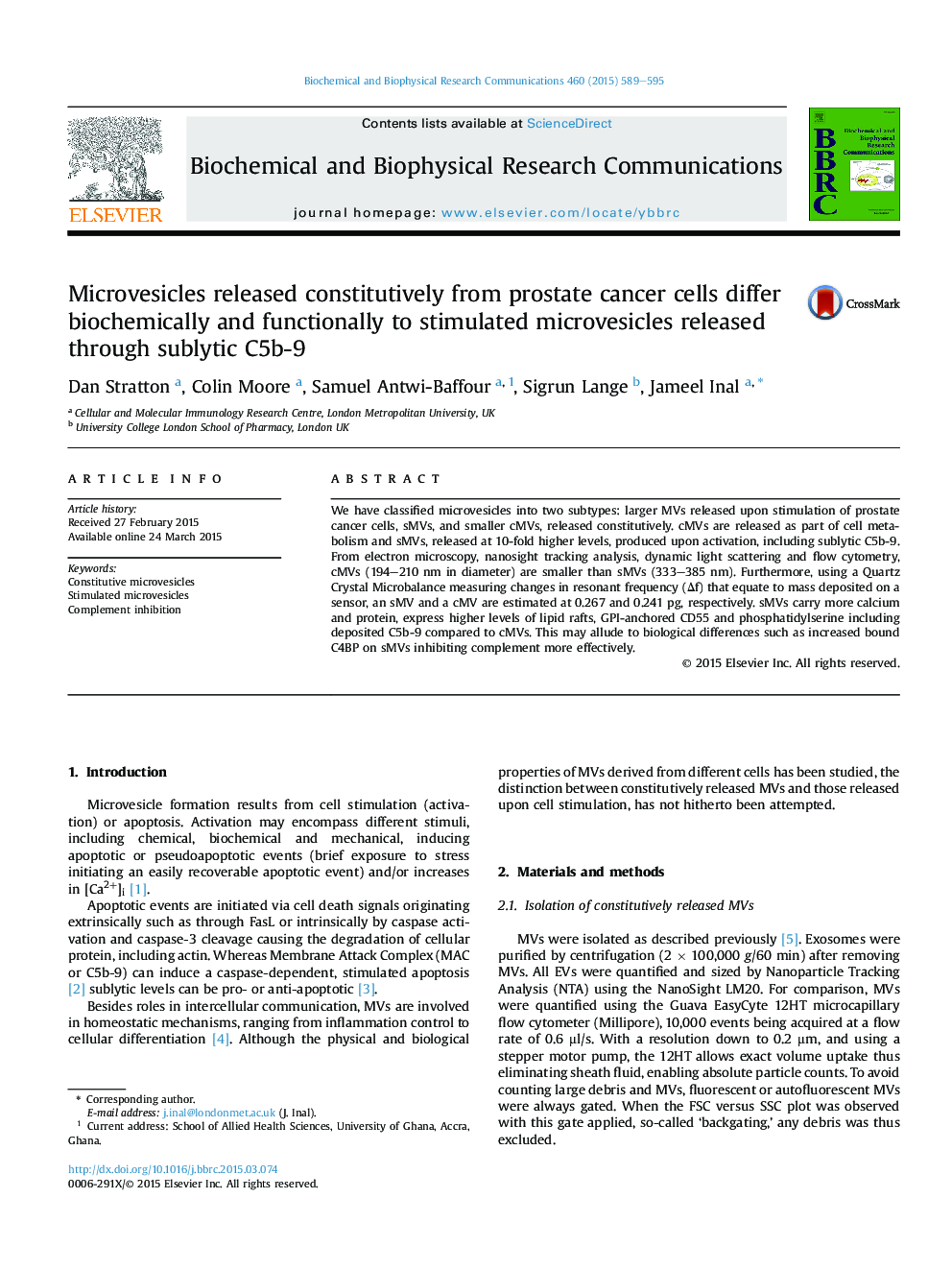| Article ID | Journal | Published Year | Pages | File Type |
|---|---|---|---|---|
| 10752007 | Biochemical and Biophysical Research Communications | 2015 | 7 Pages |
Abstract
We have classified microvesicles into two subtypes: larger MVs released upon stimulation of prostate cancer cells, sMVs, and smaller cMVs, released constitutively. cMVs are released as part of cell metabolism and sMVs, released at 10-fold higher levels, produced upon activation, including sublytic C5b-9. From electron microscopy, nanosight tracking analysis, dynamic light scattering and flow cytometry, cMVs (194-210Â nm in diameter) are smaller than sMVs (333-385Â nm). Furthermore, using a Quartz Crystal Microbalance measuring changes in resonant frequency (Îf) that equate to mass deposited on a sensor, an sMV and a cMV are estimated at 0.267 and 0.241Â pg, respectively. sMVs carry more calcium and protein, express higher levels of lipid rafts, GPI-anchored CD55 and phosphatidylserine including deposited C5b-9 compared to cMVs. This may allude to biological differences such as increased bound C4BP on sMVs inhibiting complement more effectively.
Keywords
Related Topics
Life Sciences
Biochemistry, Genetics and Molecular Biology
Biochemistry
Authors
Dan Stratton, Colin Moore, Samuel Antwi-Baffour, Sigrun Lange, Jameel Inal,
